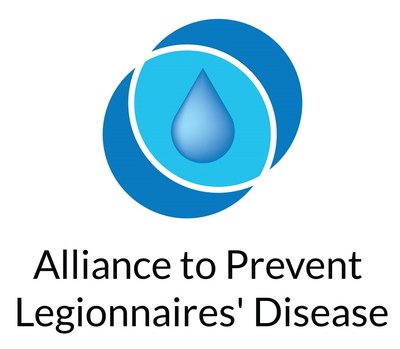Subjects: NPT, STP, ENI, ENP
Record Year for Legionnaires' Disease Across New York
WASHINGTON, Jan. 22, 2018 /PRNewswire/ -- In August 2015, New York recorded the worst outbreak of Legionnaires' disease in the state's history when 133 Bronx residents contracted the disease resulting in 16 deaths. Emergency state and city regulations were enacted and celebrated as decisive steps to address the threat. More than two years later, New York has posted a record number of cases and a significantly higher rate of Legionnaires' disease than any other state in the country per capita.

"Unfortunately we continue to see cases of Legionnaires' disease climb in New York," said APLD Spokesperson Daryn Cline. "This is especially troubling since New York is holding itself out as the leader in Legionnaires' disease prevention. The truth of the matter is their emphasis on water management inside the building has not had an impact on decreasing the rate of disease."
"We are convinced that any meaningful reduction in Legionnaires' disease in New York requires a focus on the complete water distribution system that supplies our homes and workplaces?from source to consumption," added Cline.
New York led the nation again with 1,009 cases reported to the CDC?a 38 percent increase in cases compared to 2016. Of the state total, New York City recorded 441 cases?a 65 percent increase over 2016. In fact, New York City's 2017 case total outpaced 2015?the year of the worst outbreak in New York City's history.
"These continuous increases are exactly why more resources must be dedicated to better understand the relationship between waterborne pathogens such as Legionella and our public water supply and distribution system," said Tonya Winders, President and CEO of Allergy & Asthma Network, and APLD member. "The fact remains that water containing Legionella bacteria from the public water supply is entering homes and buildings, and?as a result?people are getting sick. Some are dying."
The Alliance has been critical of the New York City and State's response to preventing cases of Legionnaires' disease since regulations were put in place after the Bronx outbreak in 2015. The group's main contention is that the regulations are too narrowly focused on building equipment and do not address the source problem?Legionella entering buildings from the public water supply and distribution system.
"Building equipment uses the same water source that supplies our showerheads and faucets. Without addressing the bacteria entering our buildings from the public distribution system, the issues we face with Legionella are not going to end," said John Letson, Vice President of Plant Operations at Memorial Sloan Kettering Cancer Center. "According to the CDC, 35 percent of Legionnaires' disease outbreaks can be attributed to conditions and disruptions to water service outside of the building. In order to keep people safe, especially those with compromised immune systems and patients receiving out-patient care, more must be done to remove the threat of Legionella in our public water."
Another key criticism of New York's current approach is the failure to properly address individual, sporadic cases of Legionnaires' disease which?according to the CDC?make up approximately 96 percent of the total recorded cases nationally. By focusing only on building equipment, New York's regulations only address a portion of the four percent of cases attributed to outbreaks?leaving hundreds of New Yorkers at continued risk of infection.
"Our public policies are being driven by outbreaks which generate news and political pressure," added Cline. "There were only two known events in New York City that were classified as outbreaks in 2017?with the highest infecting 13 people. Yet, in 2017 an average of 19 people contracted Legionnaires' disease each week across the New York state. During one week alone, there were 27 new cases in New York City, which went largely unnoticed. Worse yet, they were not fully investigated to understand the sudden spike or how to prevent similar spikes in the future."
Among other things, the APLD is a staunch advocate of mandating that every case of Legionnaires' disease undergoes a comprehensive investigation in an effort to better understand how to prevent the disease. The group also urges for more resources to be allocated to gain a better understanding of how aging infrastructure, heavy rain and flooding events, and the wider implementation of low-flow appliances are impacting the increase.
"The most important thing to remember is that Legionnaires' disease is a waterborne illness so water must be the focus of any preventive measure," added Winders. "Any solution that doesn't address the bacteria entering our homes and buildings from the public water supply and distribution system is not a solution at all."
The Alliance to Prevent Legionnaires' Disease is a non-profit organization comprising public health/medical professionals, building engineers, water treatment professionals and manufacturers of cooling technologies to advocate for comprehensive approaches to limit the growth and spread of Legionella bacteria and other waterborne pathogens. For more information about the Alliance, please visit www.preventlegionnaires.org.
Media Contact:
Greg Gordon
516-829-8374
[email protected]
SOURCE Alliance to Prevent Legionnaires' Disease
These press releases may also interest you
|
News published on and distributed by:



